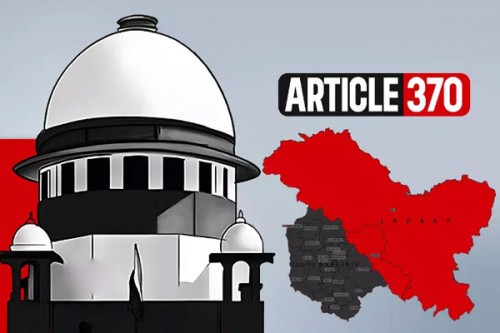Prez has power to issue notification declaring 'Article 370 ceases to exist': SC

New Delhi, Dec 11 (IANS) The Supreme Court on Monday held that the President has the power to issue a notification declaring that Article 370 ceases to exist even after the dissolution of the Constituent Assembly of Jammu and Kashmir.
Chief Justice of India D.Y. Chandrachud said that the effect of the President declaring under Clause 370(3) that Article 370 ceases to exist is that provisions of the Constitution which apply to every other state would equally apply to the State of Jammu and Kashmir.
CJI Chandrachud said that holding that the power under Article 370(3) cannot be exercised after the dissolution of the Constituent Assembly would lead to the “freezing of the process of integration contrary to the purpose of introducing the provision”.
He added: “If the contention of the petitioners on the interpretation of Article 370 vis-à-vis the dissolution of the Constituent Assembly is accepted then Article 370(3) would become redundant and would lose its temporary character.”
CJI Chandrachud held that the President, while deciding if the power under Article 370(3) must be exercised, is a policy decision which completely falls within the realm of the executive.
“The Court cannot sit in appeal over the decision of the President on whether the special circumstances which led to the arrangement under Article 370 have ceased to exist,” he said.
CJI Chandrachud held that the declaration issued by the President in exercise of the power under Article 370(3) is a culmination of the process of integration and did not find that the President’s exercise of power under Article 370(3) was mala fide.

|

|

